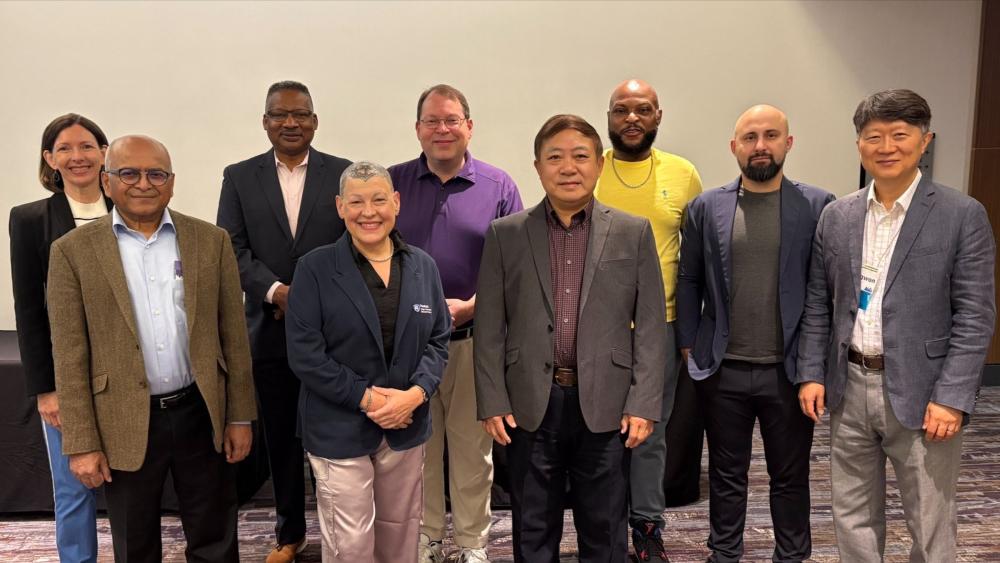The 2025 Computing Research Association (CRA) Summit, held in the heart of Silicon Valley, served as a pivotal platform for thought leaders from academia and industry to deliberate on the transformative impact of artificial intelligence (AI) on computing research, education, and workforce development. Among the attendees were representatives from Penn State’s College of Information Sciences and Technology, who brought valuable insights into the evolving landscape of AI education.
The Need for AI as a Standalone Discipline
One of the central discussions at the summit revolved around the proposition of establishing AI as a standalone degree. Vasant Honavar, a prominent figure in the field, passionately argued that AI is not merely an adjunct to computer science but a foundational element deserving its own academic recognition. Honavar’s advocacy underscores a growing acknowledgment within the educational sector that AI's complexities and applications warrant dedicated study and specialization.
"AI is not just a tool within computer science; it is a fundamental discipline that shapes the future of technology and our society. As such, it deserves its own academic focus," stated Vasant Honavar.
Balancing AI and Computer Science in Education
The summit concluded with a consensus that both AI and computer science hold equal importance in shaping the future of technology education. This balanced view is crucial as educational institutions grapple with curriculum development that adequately prepares students for a rapidly evolving job market. The integration of AI into educational frameworks is seen as essential for equipping the future workforce with the necessary skills to navigate and innovate in an AI-driven world.
Implications for Workforce Development
The discussions at the CRA Summit also highlighted the broader implications of AI on workforce development. As AI technologies continue to permeate various sectors, there is an increasing demand for professionals who are not only proficient in AI but also understand its ethical dimensions and societal impacts. This dual focus on technical proficiency and ethical literacy is imperative to ensure that AI advancements contribute positively to society.
In conclusion, the 2025 CRA Summit underscored the critical need for educational institutions to adapt their curricula to reflect the growing significance of AI. By recognizing AI as a standalone discipline and maintaining a balanced approach with computer science, universities can better prepare students for the challenges and opportunities of the future workforce.
Originally published at https://www.psu.edu/news/information-sciences-and-technology/story/ist-makes-statement-ai-education-national-computing
ResearchWize Editorial Insight
The 2025 CRA Summit's focus on AI's role in education and workforce development is crucial for students and researchers. As AI becomes more integral to various sectors, the call to establish AI as a standalone discipline highlights a shift in educational priorities. This shift suggests a pressing need for curricula that not only cover AI's technical aspects but also its ethical and societal impacts.
For students, this means future-proofing their careers by gaining expertise in AI, a field poised to dominate tech-driven industries. Researchers must consider how AI's growing prominence will shape academic inquiries and funding opportunities. The summit's consensus on balancing AI with computer science indicates a potential restructuring of educational frameworks, which could redefine career paths and research focuses.
The big question: Are educational institutions ready to adapt swiftly enough to prepare students for an AI-centric job market? The long-term effects of this shift could redefine workforce dynamics and influence global competitiveness. How will this impact the gap between tech-savvy and tech-deficient regions? These are the systemic risks and hidden trends that need attention.
Looking Ahead
1. AI as a Core Curriculum Component: Imagine a world where AI isn't just a course but a core component of every academic program. As AI weaves itself into the fabric of various industries, every student, whether in engineering, business, or the humanities, should graduate with a foundational understanding of AI technologies and their implications. Will universities rise to the challenge of making AI literacy universal?
2. Interdisciplinary Approach: AI doesn't exist in a vacuum. It intersects with ethics, law, psychology, and more. As such, AI education must evolve into an interdisciplinary field. What are the risks if we fail to integrate AI with these critical areas? Institutions must design programs that cut across traditional academic boundaries, fostering collaboration and innovation.
3. Ethics and AI: As AI systems increasingly influence decision-making, ethical education becomes paramount. How can we ensure that AI professionals are equipped to handle the moral dilemmas posed by autonomous technologies? Incorporating ethics as a cornerstone of AI education is not just advisable; it's imperative.
4. Adaptive Curriculum Models: The pace of AI development outstrips traditional curriculum cycles. Educational institutions must adopt agile curriculum models that can rapidly integrate new developments and technologies. What happens if regulators and educators fall behind? The risk is an ill-prepared workforce that cannot meet the demands of an AI-driven economy.
5. Practical and Experiential Learning: Theoretical knowledge must be complemented with hands-on experience. Partnerships between academia and industry can facilitate this, providing students with real-world challenges to solve. Are educational institutions ready to break down silos and form these crucial alliances?
6. Continuous Learning and Upskilling: AI is not static. Lifelong learning must become the norm, with educational institutions offering continuous upskilling opportunities. How can we design a system that supports professionals to stay ahead in their field without disrupting their careers?
7. Global Collaboration: AI knows no borders, and neither should AI education. Universities must collaborate internationally to share resources, research, and teaching methodologies. Will global educational alliances become the new standard?
Originally reported by https://www.psu.edu/news/information-sciences-and-technology/story/ist-makes-statement-ai-education-national-computing.
Related Articles
- Supporting the future of AI Research in Africa and globally
- NotebookLM Is Google's Best AI Tool -- Here's What It Can Do for You
- NSF Invests $100 Million In New AI Research Institutes
📌 Take the Next Step with ResearchWize
Want to supercharge your studying with AI? Install the ResearchWize browser extension today and unlock powerful tools for summaries, citations, and research organization.
Not sure yet? Learn more about how ResearchWize helps students succeed.

